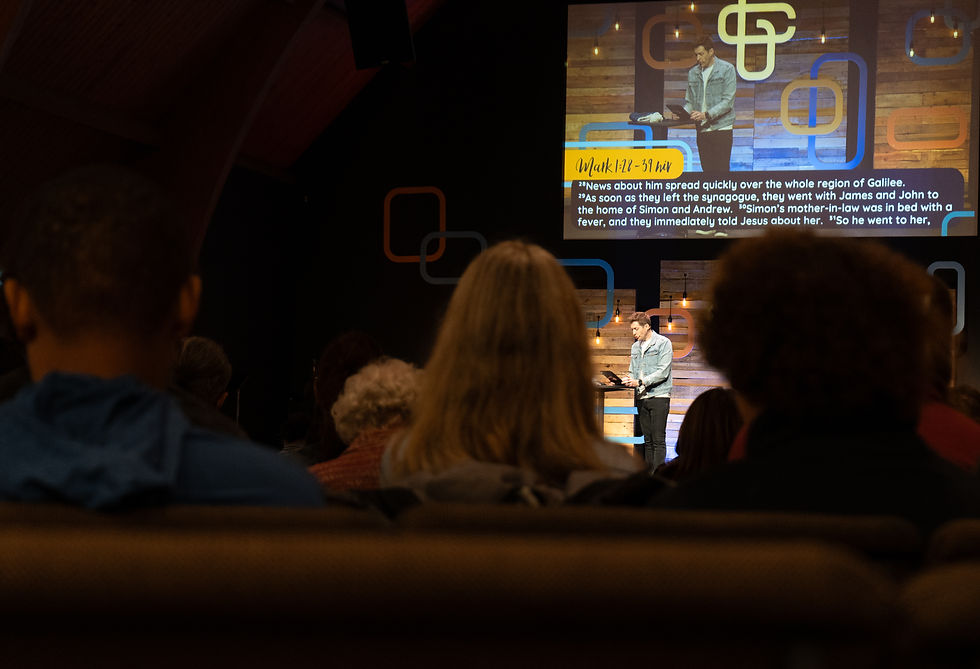How should I relate to other Christians, Churches and Christian organizations different from my faith tradition?
- Louis Scheepers

- Dec 10, 2024
- 4 min read
Updated: Jun 24

I grew up in a mainline church in South Africa, with many of my ancestors being pastors, theological professors and missionaries in the same denomination. When God called me into vocational ministry, I started studying at our denomination's seminary. For 9 years, I worked in our denomination, first as a Youth Pastor and later as a Lead Pastor. Through my studies and digging deeper into the Word of God (often to defend orthodox Christian theological views against liberal theological views that became common at our seminary), I discovered how much the faith tradition you grow up in can shape what you believe about God and the Church. Without realizing it, we believe things based on what we've been taught, rather than the best and most straightforward interpretation of the Bible. I started reading books, listening to sermons and making friends with pastors in denominations different from ours. Later, when I resigned from the denomination and started planting churches, my exposure to other Christian churches worldwide rapidly expanded. With the rise of social media, blogs, and podcasts, it has also become easier to gain fast access to theology, churches, and pastors that you couldn't easily access before.
This exposure started leaving me with questions about how I should relate to friends, co-workers, churches and Christian organizations that do not share the same theological views as mine. Perhaps you've also wrestled with that as you sing songs from artists or churches different to yours or read books written by Pastors in a different faith tradition. I want to share a couple of thoughts that might help you navigate this in a healthy way:
"In essentials, unity; in non-essentials, liberty; in all things, charity." - often attributed to St. Augustine, John Wesley, and several theologians in between. This quote has been a great help to me! The Church has been divided over minor differences in the interpretation of non-essential doctrines for centuries, and it has caused much harm to the mission of the Church. But what is essential, and what is non-essential? The essentials are the doctrines that form the foundations of orthodox Christianity - the doctrines that relate to our salvation and the basic understanding of our Triune God. The non-essentials are the doctrines that don't affect our salvation or affect our understanding of the nature of our Triune God.
From Tim Keller, I learned that it takes hundreds of churches to reach a city for Christ. Not all churches are the same and reach the same people. God uses different churches to reach different people for His Kingdom. As long as we share orthodox Christian essentials, we should understand that we will share heaven with people who do not share all our theological views. All of these churches are needed to reach our world for Christ.
Paul reminded the church that "For now we see only a reflection as in a mirror; then we shall see face to face. Now I know in part; then I shall know fully, even as I am fully known." (1 Cor 13:12). We need to make peace with the fact that our minds are human with limited capacity and understanding. God is eternal; He is transcendent, and we cannot fully understand Him. The moment we accept that we will never know the answer to every question we might have, the sooner we start living with grace and love towards others, both Christians and non-Christians, without trying to convince everyone that: "I am the only one with a perfect understanding of God and His Word".
I have learned that we can choose how we associate with others. We can have 'family,' 'friends,' and 'acquaintances.' There are different concentric circles in how we relate to others. As the circles widen, the influence of these people diminishes. It is not wrong to hold to specific theological distinctions - I have clear theological distinctions, and so does my church. Therefore, we are part of a family of churches that share our distinctives, but we can also have 'friends' who aren't aligned in these distinctives but still share the foundational doctrines of Christianity with us. It is not the one or the other - you can have both.
Lastly, do not let non-essential distinctions become an idol in your life. Our distinctions should help us keep our eyes on the mission of Jesus and not distract us from it. The moment our distinctions become a distraction to the mission of Jesus, it becomes a tool Satan uses to divide the Church and to derail the work of the Church. Soon, we end up looking more like the Pharisees than the disciples of Jesus.
There is a time to draw a line in the sand. For me, this is when the essential Christian foundations are rejected. Except for those circumstances, I believe that all Christians and Churches should learn to be more Kingdom-minded - that means the Kingdom of Jesus becomes more important to us than the little kingdoms we build so eagerly. I am thankful for my friendship with mentors, pastors, churches, and organizations who love Jesus but express it differently than I do. I eagerly anticipate the day we will all stand before the throne of Jesus and worship Him in one accord. So, let's love our brothers and sisters in Christ, even if they look a little different from us.
Louis Scheepers



